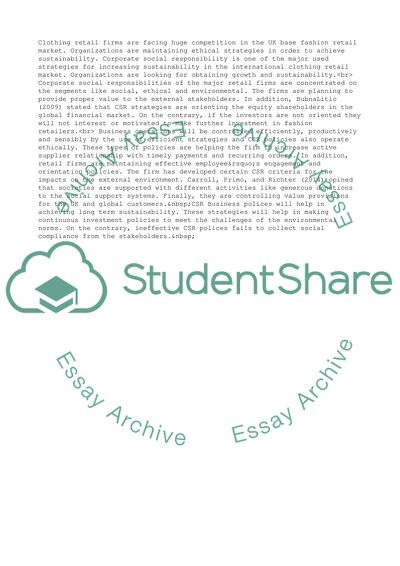Cite this document
(Ethics within the Clothing Retail Sector Coursework, n.d.)
Ethics within the Clothing Retail Sector Coursework. Retrieved from https://studentshare.org/management/1689175-ethics-within-the-clothing-retail-sector-02225
Ethics within the Clothing Retail Sector Coursework. Retrieved from https://studentshare.org/management/1689175-ethics-within-the-clothing-retail-sector-02225
(Ethics Within the Clothing Retail Sector Coursework)
Ethics Within the Clothing Retail Sector Coursework. https://studentshare.org/management/1689175-ethics-within-the-clothing-retail-sector-02225.
Ethics Within the Clothing Retail Sector Coursework. https://studentshare.org/management/1689175-ethics-within-the-clothing-retail-sector-02225.
“Ethics Within the Clothing Retail Sector Coursework”, n.d. https://studentshare.org/management/1689175-ethics-within-the-clothing-retail-sector-02225.


